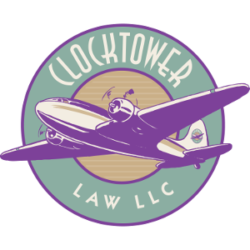It is possible for independent inventors and small businesses to acquire patents and protect their ideas without going broke in the process.
By Erik J. Heels
First published 8/2/2004; Mass High Tech; publisher: American City Business Journals.

1. Consider trade secrets. If your idea cannot be reverse engineered, consider protecting it with a strong trade secret policy instead of getting a patent. Patents can provide up to 20 years of protection, but trade secrets can provide protection forever. Companies should have clear policies with their employees regarding keeping secret information secret, should avoid exposing nonemployees to trade secrets, and should require nonemployees to sign nondisclosure agreements for the secrets they are exposed to.
2. Consider doing it yourself. Every inventor should have a copy of the self-help book “Patent It Yourself” by David Pressman (http://www.nolo.com/). If you have the time but not the money, this book can help you write and file your own patent application. Plus it explains patent law in plain English.
3. Understand patent basics. Even if you decide not to file a patent yourself, reading “Patent It Yourself” can give you a firm understanding of the basics of patent law. If you understand the patent process, you will be able to work efficiently with a patent professional to help turn your idea into a patent.
4. Consider hiring a patent agent. Patent agents are perhaps the best kept secret in patent law. Patent agents are engineers who have studied patent law and have passed the so-called “patent bar exam” to become licensed to file patents. Many have solo practices. You can find patent agents by searching the USPTO’s database of patent attorneys and agents (http://des.uspto.gov/OEDCI/).
5. Quiz your patent professional. Find out who will be primarily responsible for prosecuting your patent application and quiz him/her about your invention. And it may or may not be the person pitching you to hire a particular firm. You have done your homework to understand patent law, your patent professional should have done their homework to understand your invention. Has your patent professional worked in your industry? As an engineer in your industry? Did you have to explain the invention more than once?
6. Ask good questions. You can save a lot of money during the patent prosecution process if you file all the required paperwork at once rather than piecemeal. Ask your patent professional if they routinely file “missing parts” with the USPTO and, if so, who pays for this. Ask if they reply to requests for information from the USPTO promptly or at the last possible moment. If petitions for extra time are filed, who pays? It’s one thing to pay for the hard work of drafting patents, but it’s another thing entirely to pay for avoidable delays and extra filings.
7. Do a patent search. Many patent professionals will advise inventors not to do a patent search on the (unfortunately) correct theory that if you don’t do a patent search, you are more likely to get a patent. If your only goal is to get a patent, then fine, don’t do a patent search. But if you want to get a strong patent, do a patent search. When your patent issues, it is presumed to be patentable over all of the other cited patents. From a business perspective, patent searches may reveal that it may not make sense to proceed with a patent — or with your product. In this case, it makes more sense to spend a couple of thousand dollars on a search and patent ability opinion to save spending tens of thousands dollars on an unnecessary patent application.
8. Consider filing a provisional patent application. A provisional patent application gives you “patent pending” status for a year. Within that year, you must make the decision to file both a regular (nonprovisional) patent application AND any foreign patent applications or else lose the benefit of the provisional application’s filing date. It will eventually cost more to file a provisional application and a follow-on nonprovisional application, but if your funds are tight in year one, a provisional application may be the right solution.
9. File at the right time. You have to file within a year of several events, including publishing, offering to sell, and selling your invention. So you don’t want to file too late. But you don’t want to file too early either. If you are considering the provisional patent route, make sure you are ready to make the most of that one-year “patent pending” status. Be ready to turn your idea into a product that generates revenue. If you file a provisional application too soon, your one-year “patent pending” status will expire and you won’t have the funds to continue with a regular patent application.
10. Get insurance. Patents can be used offensively to request licenses from competitors or defensively to reject requests for licenses from competitors. Small companies are often the targets of larger companies. There are companies that provide offensive and defensive intellectual property insurance (http://www.patentcafe.com/businesscenters/). Insurance is meant to cover the things that you cannot afford, and few small companies can afford litigation of any sort.
In short, the more prepared you are, the more patents you can get and defend, without going broke in the process.



[EDITOR’S NOTE: In the summer of 2025, Clocktower Intern Mark Magyar used artificial intelligence (AI) software to shorten over 100 Clocktower articles by 17%. The shortened articles are included as comments to the original ones. And 17 is the most random number (https://www.giantpeople.com/4497.html) (https://www.clocktowerlaw.com/5919.html).]
* How To Get And Defend A Patent Without Going Broke
It is possible for independent inventors and small businesses to acquire patents and protect their ideas without going broke.
By Erik J. Heels
First published 8/2/2004; Mass High Tech; publisher: American City Business Journals.
Consider trade secrets. If your idea can’t be reverse engineered, protect it with a trade secret policy instead of a patent. Patents last up to 20 years, but trade secrets can last forever. Companies should have clear employee policies, avoid exposing nonemployees, and require nondisclosure agreements.
Consider doing it yourself. Every inventor should own David Pressman’s Patent It Yourself (http://www.nolo.com/
). If you have time but not money, it can help you file your own application and explains patent law in plain English.
Understand patent basics. Even if you don’t file yourself, reading Patent It Yourself will give you a foundation. Understanding the process helps you work efficiently with a professional.
Consider hiring a patent agent. Patent agents are engineers who passed the “patent bar” and can file patents. Many run solo practices. Find them in the USPTO database (http://des.uspto.gov/OEDCI/
).
Quiz your patent professional. Confirm who will actually prosecute your application. Your professional should know your industry and understand your invention after one explanation.
Ask good questions. Save money by filing all required paperwork at once. Ask if your professional files “missing parts,” who pays for delays, and whether replies to the USPTO are prompt or postponed.
Do a patent search. Some professionals advise against searches since it may lower your odds of getting a patent. But if you want a strong patent, do the search. It may reveal your idea isn’t worth pursuing, saving you tens of thousands later.
Consider a provisional application. A provisional gives you “patent pending” status for one year. Within that year, you must file a nonprovisional and any foreign applications. It costs more long term, but can buy time if funds are tight.
File at the right time. You must file within a year of publishing, offering for sale, or selling. Don’t file too late, but filing too early wastes your one-year pending status if you can’t move forward.
Get insurance. Patents can be used offensively to license or defensively to block competitors. Small companies are often targets. Intellectual property insurance (http://www.patentcafe.com/businesscenters/
) can cover litigation few startups can afford.
Bottom line: Preparation is the key. The more you know, the more patents you can secure and defend—without going broke.